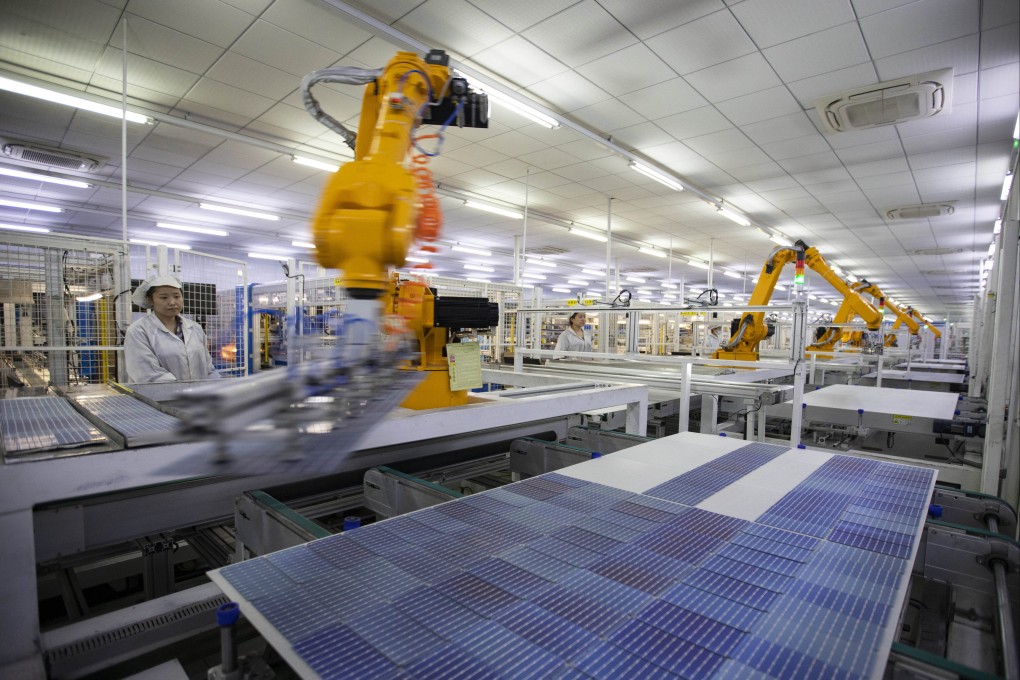Chinese solar material maker GCL Technology mulls maiden overseas plant to bypass potential US trade barrier, tap EU market
- Jiangsu-based GCL Technology could unveil plans to set up its first overseas plant either in the Middle East or Europe as soon as this year, co-CEO Lan Tianshi said
- GCL aims to raise production of granular polysilicon to between 220,000 and 240,000 tonnes this year

GCL Technology, one of China’s largest solar material makers, is mulling overseas expansion to circumvent potential trade barriers from the United States and gain access to cheap green electricity.
The Jiangsu province-based producer of polysilicon controlled by entrepreneur Zhu Gongshan could unveil plans to set up a plants either in the Middle East or Europe as soon as this year, co-CEO Lan Tianshi said in an interview last week.
“The US is expected to impose some requirements or preferences on the countries of origin of solar panels and materials,” he said. “We hope to be able to circumvent them by establishing overseas production facilities.”
In December, Washington announced a preliminary decision to impose new duties on solar panel imports from major Chinese makers deemed to be circumventing tariffs by finishing their products in Southeast Asia. The tariffs may kick in as soon as the middle of next year after a two-year waiver from President Joe Biden expires.

An overseas plant would allow GCL to better serve customers that could relocate solar cell and panel production out of Southeast Asia. The US is not a priority for GCL’s overseas capacity buildout, because of the long construction lead times, Lan said.